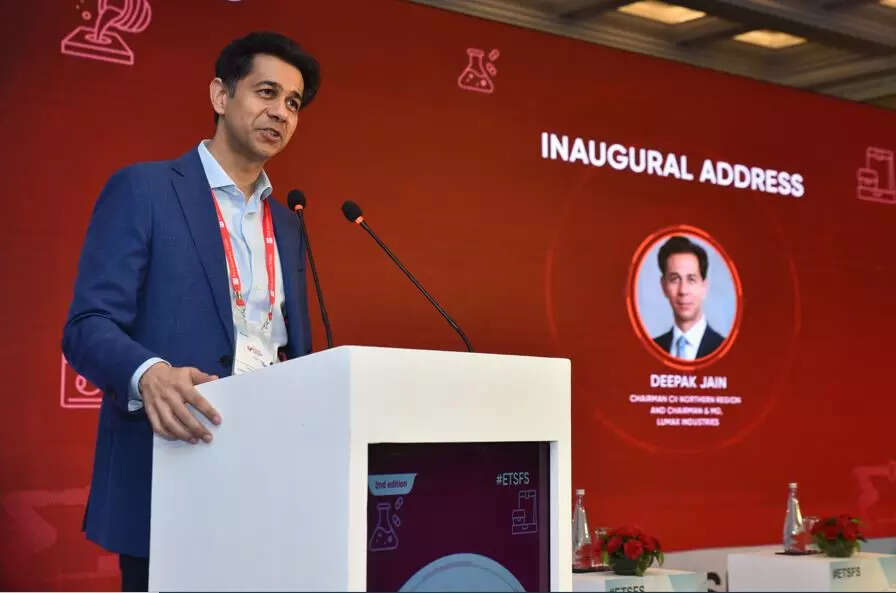
New Delhi: Global manufacturing comprises 17% of the world economy, a huge contributor to global prosperity. India’s manufacturing sector accounts for 13.5% of its GDP, a decline from 50% a decade ago. Prime Minister’s vision of India as a USD 5 trillion economy by embracing manufacturing, targeting a 20% share, is an ambitious undertaking requiring growth rates 2.5 times the past 15 years’ performance, said Deepak Jain- Chairman, CII Northern Region, Chairman and MD Lumax Industries in his inaugural address at ET Smart Factory Summit 2023
He gave insights into how the recent events, such as the G20 Summit in Delhi, emphasized the importance of responsible, accelerated, innovative and sustainable practices, echoing the smart manufacturing ethos. World Overshoot Day on August 2, 2023, highlighted the urgency of sustainable practices. To address the annual consumption of 100 billion tons of materials, 92% of which are single-use, manufacturing must focus on sustainability and competitiveness. This includes innovations and projects like Saudi Arabia’s Neom City’s Oxagon, emphasizing sustainability and circularity.
He also mentioned how Tesla’s Gigacast technology demonstrates the transformative power of innovation in manufacturing, reducing costs by 40% and streamlining production. He said, “You need to be not just transforming responsibly but you need to be using the technologies like AI, Machine Learning, Augmented Reality, Virtual Reality, Big Data Analysis, Robots, Additive Manufacturing and IoT responsibly.”
The challenge of skilling or reskilling the workforce is very important. Industry must play a proactive role in fostering skilled talent. Diversity in manufacturing extends beyond gender to encompass application, demographics, region, experience, education, and skills.
In essence, “Smart Manufacturing in India stands for ‘sustainable manufacturing,’ using advanced and responsible technologies.” India’s auto ecosystem is poised for growth, and the industry must seize the opportunity to transition to smart and sustainable manufacturing systems, Deepak Jain added.
As India marches towards a $USD 5 trillion economy, the future of smart factories is promising. While challenges exist, they are overshadowed by the vast opportunities awaiting those willing to embrace innovation, sustainability, and competitiveness.

